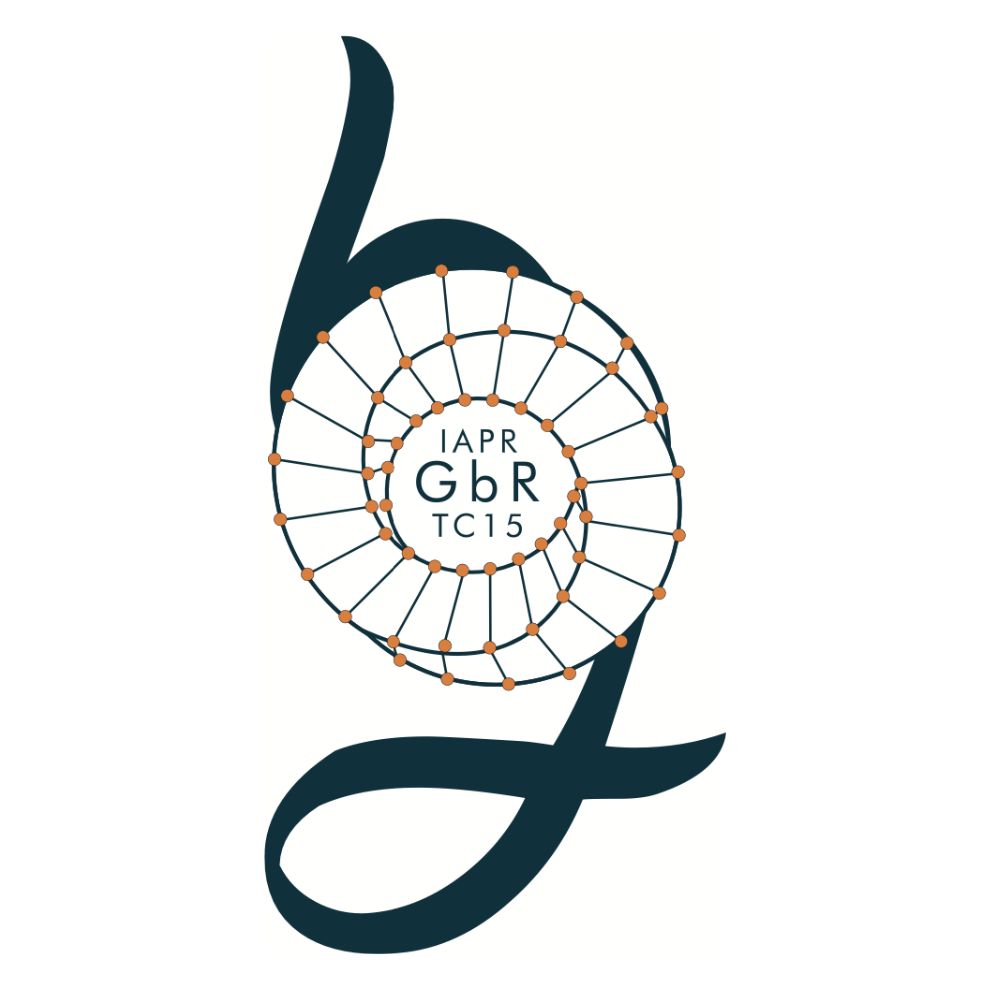We agree to focus on some special “challenges” which can help our community to federate its research. These challenges are:
Strategies for matching graphs having large set of nodes
Very powerful tools already exist for matching graphs. However, due to their complexity, these algorithms cannot be used for graphs having very large sets of nodes (say more than 1000). Because we cannot change these tools, we can work on the “data”, i.e. the graphs. The goal of this “challenge” is to propose new strategies involving, for instance, graph reduction, stochastic or heuristic sampling, and other techniques aimed at reducing the computational cost.
Increasing the “intelligence” of a pixel-based graph
When working with image based features, we often end up with a RAG-like graph which is very useful for image analysis but not for image and pattern recogntion, because it takes only into account very low level relations. How can we enhance such a graph without loosing of course its useful properties?
Benchmarking
This topic is of great importance if we want to take into account the mistakes that have been made in the past within the research on edge detection (some authors proposed many new optimal edge detectors only because we had no tools to make them compete, or just to compare and classify them, on the basis of real data).
n-D representations
Graphs can be used for image feature representation. In the past this usage has mainly regarded representation in a 2D space, but in recent years some interesting works on 3D representations have been proposed. What about 4D? Are graphs a useful representation for temporal data?
Discussions and exchanges of ideas about these topics have taken place during the past GbR workshops and on our mailing list.
Future Activities
Our future activities will be centered on the following main themes:
Enhancing the divulgation of the scientific results of our community
In order to make more easy the validation and the reproduction of our results, and thus to make them accepted as more significant, it is important to continue the definition of standard databases to be used as test cases (making different approaches directly comparable), and to develop benchmarking protocols for the different kinds of graph-related problems that are of interest for the TC15 members.
Increasing the interchanges with other groups/communities
In order to favor the interchange with other communities the idea is the inclusion of special sessions related to graph-based techniques in conferences and workshops targeted at a wider audience, and the organization of joint events with other groups.
Stimulating the diffusion of the techniques developed by our community into applicative contexts
The individuation of relevant applications can help our research activity to remain focused on important issues; moreover, a demonstration of the impact of our methods on practical applications can attract the interest of a wider group of researchers, in the industry as well as in the academy.
